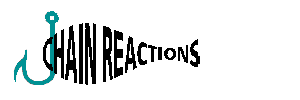Ocean Planet Customized Tour: Page 10 of 14





1
2
3
4
5
6
7
8
9
10
11
12
13
14
The text on this site is presented as an
archival version of the script of "Ocean
Planet," a 1995 Smithsonian Institution
traveling exhibition. The content reflects the
state of knowledge at the time of the exhibition,
and has not been updated.

What happens when people catch too many fish?
Fishermen lose their livelihood; other animals may starve. Entire marine
ecosystems react to the strain of heavy fishing pressure.
Where have all the codfish gone?
In 1992, the Canadian government closed fishing for Atlantic cod
off of Newfoundland, and more than 50,000 people lost jobs §.
Several problems contributed to the decline in Atlantic cod:
heavy fishing pressure, changes in water temperature, and decline
in the cod's prey, a fish called capelin.

Load of cod, near Fogo Island, Newfoundland, before the cod
fishery was closed, July 1990
photo © Gordon Peterson

Cod coffin
Fisherman Dan Murphy made this symbol of the closing of the
Newfoundland cod fishery in 1992.
Short seasons make fishermen play beat the clock
One way to try to control fishing pressure is to limit the time
during which fish can be caught. By 1992, the entire U.S.
commercial fishing season for Pacific halibut off Alaska had been
pared to two 24-hour openings per year. For two days, fishermen
worked round the clock, often in bad weather, risking life and
limb to catch as many halibut as humanly possible. §

Regardless of weather and exhaustion, fishermen race against time and each other in the dangerous halibut "derby," Alaska, 1993
Most halibut hooked weigh between 20 and 100 pounds (9.1-45.4
kg), but when a 300-pounder is on the line, the whole crew must
help land it §.
In 1992, fishermen landed about 60 million pounds (27.2 million
kg) during the 48-hour halibut season §
photo © Bob Sacha
Catch quotas may be better for fish, fishermen, and fish consumers
Under the new individual quota system, a certain number of
halibut fishermen are given rights to a limited catch. This
system could eliminate the "races" in open-season fishing, give
more time to handle non-target catch safely, make working
conditions safer, let fishermen decide when to fish, bring
fishermen higher prices, and bring consumers better, fresher
fish. § § ª
With fewer fish to eat, sea lions suffer
Like some birds and other fish-eating mammals in the Bering Sea
and northern Gulf of Alaska, Steller sea lions are declining in
number. Biologists think that food shortages due to pollock
fishing may be one of the major causes of the sea lions'
population decreases §.

16,000 pounds of pollock in one haul
More pounds of Alaskan pollock were caught in 1993 than any other
fish in the U.S. § Steller sea lions also prefer pollock.
photo © NOAA

Steller sea lions fishing for pollock, Alaska
Low birth weights and less healthy adults indicate that food
shortages may be limiting Steller sea lion and harbor seal
populations in some areas of the North Pacific §.
photo © Kennan Ward/Natural Selection
Skates and sharks take over after overfishing
Even the richest fishing grounds can run out of fish. Cod,
haddock, and yellowtail flounder were once common catches in the
waters above Georges Bank, a vast plateau off New England and
Nova Scotia. Now, after three decades of heavy fishing,
ineffective management, and environmental changes, nets are full
of less valuable skates and spiny dogfish, a small bottom-
dwelling shark §.

A haul mostly of skates instead of cod, Georges Bank
photo © Richard Howard
More Information:
A landmark agreement controls fishing to conserve an ecosystem
Fishing, whaling, and seal hunting in past years depleted many
species in the Southern Ocean around Antarctica. When interest
grew in harvesting the krill that many antarctic birds, mammals,
and fish eat, it prompted world leaders to negotiate a new
approach to fisheries management. CCAMLR (the Convention for the
Conservation of Antarctic Marine Living Resources), a treaty
enacted in 1980, requires that regulations managing all Southern
Ocean fisheries consider potential effects on the entire
antarctic ecosystem §.

Emperor penguin, one of many antarctic species that could suffer
from overfishing of krill
photo © Ben Osborne/Oxford Scientific Films

Krill, a vital link in the antarctic food web
In 1991 a limit was set on krill catch after CCAMLR evaluated the
impact of the krill harvest not only on the krill population but
also on other species that depend on these tiny shrimp-like
animals for food § §.
photo © Flip Nicklin/Minden Pictures
Other Resources:
- Marine Life Sciences - A division of the British Antarctic Survey undertakes primary research directed at improving and understanding of the structure and dynamics of the Southern
Ocean ecosystem.
 Ocean Planet Exhibition Floorplan
Ocean Planet Exhibition Floorplan

 gene carl feldman (gene@seawifs.gsfc.nasa.gov) (301) 286-9428
gene carl feldman (gene@seawifs.gsfc.nasa.gov) (301) 286-9428
Judith Gradwohl, Smithsonian Institution (Curator/Ocean Planet)














![]() Ocean Planet Exhibition Floorplan
Ocean Planet Exhibition Floorplan
![]()